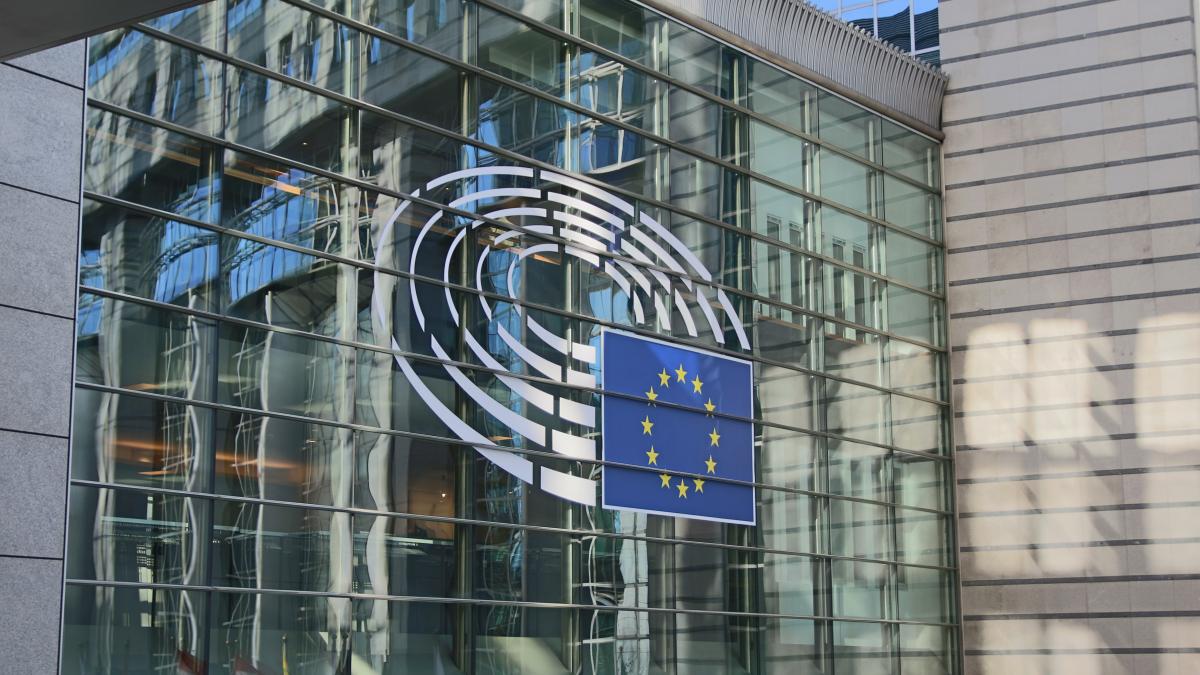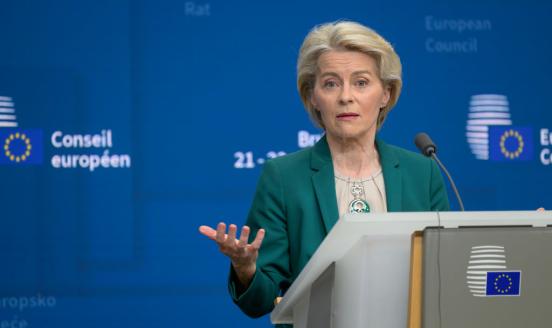The Conference on the Future of Europe: vehicle for reform versus forum for reflection?
The approach of the European Union’s institutions to the Conference on the Future of Europe is muddled, with risks for the outcome.

The European Union after several delays opened the Conference on the Future of Europe on 9 May 2021. Its purpose, according to a March 2021 Joint Declaration from the presidents of the EU institutions, is to “open a new space for debate with citizens to address Europe’s challenges and priorities”. The conference is aimed in particular at younger Europeans.
The broader context is that there is a widely-shared, though far from uncontested, view that the EU needs reform. The euro and refugee crises, the coronavirus pandemic, Brexit, the rise of populism, and a less rule-governed and predictable global order have raised concerns about the EU’s ability to deliver solutions to pressing problems. There are also concerns about the EU’s democratic deficit and its weak connection to citizens, though it should be noted that the EU has exhibited greater-than-expected coherence in the handling of Brexit. In response to the coronavirus pandemic, the EU has launched the Next Generation EU recovery fund. However, what that will amount to in terms of EU’s long-term resilience remains unclear.
The Joint Declaration presented the conference as a way to solicit citizens’ views on the issues that matter to them, and what they think the EU should do about those issues. The conference will devise platforms and forums for active engagement with citizens. The question is what that means in terms of reform, and the broader impact the conference will have on the EU’s future nature and direction of development.
The conference’s outcome is uncertain. One reason for this is that the European Commission, Council and Parliament, which are in joint charge of the conference, have very different views on the conference’s goals. From the three institutions’ proposals, two different visions emerge. We can label these two visions vehicle for reform versus forum for reflection. The European Parliament wants the process to be an exercise in participatory democracy that results in tangible reforms, including treaty reforms, to improve EU governance and reinforce the EU’s democratic legitimacy. In contrast, the Council has a far less ambitious position on citizens’ participation, underlines the need to focus on ‘policy first’, and has stated that the process should not lead to treaty changes.
The Joint Declaration gives no commitment that the citizens’ deliberations will be followed up with tangible action, beyond the production of a report. Nevertheless, the Joint Declaration is not without democratic ambitions. It notes that: “(w)e, the Presidents of the European Parliament, the Council and the European Commission, aim to give citizens a say on what matters to them” [sic].
Different visions and institutional responsibilities
The ambiguity of asking people to have a say whilst refraining from committing to a course of action to follow up on what they want can be related to differences in the institutions’ democratic sensitivities and societal responsiveness. The three institutions have their roots in different spheres of political life and in different visions of the EU. The European Parliament is situated in the world of representative-participatory democracy and seeks to domesticate EU politics as part of developing the EU into a democratic polity. The Commission has its roots in administration and technocratic governance. The Council is situated in the world of diplomacy and is particularly attuned to the EU as a body of sovereign states. The domestic/international tension also marks the EU’s institutional structure as a complex mix of supranational and intergovernmental institutions. This tension can also be said to be reflected in the two core visions for the conference: vehicle for reform versus forum for reflection.
Thus, the conference’s mandate and anticipated role seem to reflect a difficult inter-institutional compromise that is ultimately rooted in two different visions of what the EU is and should be. The question is what this lack of a coherent inter-institutional agreement will mean for the unfolding and broader effects of the conference.
How can tensions and ambiguities be overcome?
The different visions of the conference reflect not only ingrained EU institutional differences, but also differences between EU countries (which feed into inter-institutional dynamics). It is therefore likely that the conference will have the ambiguities we have outlined built into it. It follows that those who want to see the conference lead to tangible reform must take active steps to turn it into a reform vehicle. Reform advocates need to build up enough momentum during the conference to ensure that there will be sufficient pressure on leaders to take action subsequently. For that to happen, it is clear that the conference must be able to do something beyond only citizen engagement activities.
A major challenge is to grapple with the still relatively weak European public sphere. In a fully developed European public sphere, people would discuss the same issues at the same time across the EU. And while the EU’s public sphere has grown, it remains fragmented compared to national public spheres. Even if the conference is able to build up momentum from its own work, there remains the issue of connecting with national publics to trigger a pan-European dynamic. That would require the promoters of reform to agree on a reform agenda to submit to citizen panels and plenaries. Unofficial policy coordination would be needed before the formal institutional involvement, in order to establish a coalition able to introduce a transnational narrative on EU reform. This development might be useful also for catalysing the forces and the narratives of those who oppose reform, given that their aim is to keep the conference within the confines of a forum for reflection.
Lessons can be learned from past national and European-level debates on the future of Europe. In many EU countries (based on analysis of parliamentary debates), there is little discussion of EU institutional or governance reform, but rather a focus on policies that require immediate and necessary reforms, primarily filtered by national perspectives, problems and interests. The main shared contexts that in recent years have structured debates on the future of Europe have been crises: financial, migration, Brexit and now COVID-19. Overall, the main pattern is neither a fully coherent debate on the future of Europe, nor a debate that is fully segmented or separated into diverse and incompatible national realms. Thus even if the issues and problems debated are similar, local responses, policy solutions and proposals for how to reform EU governance vary significantly.
In any case, the symbolic representation of the EU matters. The Council with its roots in the member states is implicitly propounding a bottom-up Conference in a union of states. This approach conveys an overly constrained notion of the EU as the outcome of the aggregation of national citizenries, national civil-society organisations, national publics, national media, national parties, national parliaments, and national governments. This idea does not acknowledge the EU as a distinct organisation, separate from the member states, with a claim to its own legitimacy and raison d’étre. Instead, the EU is implicitly portrayed as an extension of the nation-state experience, in which citizens can relate to authorities without this having any bearing on their identities, and in denial of the fact that many citizens have already incorporated a European identity alongside their national and regional identities. The exercise would then likely end up bringing out the differentiated idiosyncratic national perceptions of the EU, confirming the fragility of the latter’s legitimacy. A basic reform agenda for the conference that takes into consideration the EU perspective would have helped to rein in the sprawl of local and national debates, preventing those debates from having centrifugal effects.
Managing expectations
The fact that the conference sends an ambiguous message to citizens has bearings on an important leadership issue, which is to manage citizens’ expectations. The Commission, Parliament and Council are directly in charge of the conference, with the implication that the conference results and how it is perceived and portrayed will reflect back directly on the three institutions. Their management of public expectations is therefore an important input into the conduct and effects of the conference.
There is already evidence that the decision to launch the conference has raised hopes and expectations among citizens and groups. The fact that there are different visions associated with the Conference suggests that managing expectations will be difficult, especially because there are pitfalls associated with both visions of the conference.
Turning the conference into, or framing it, as a vehicle for reform will itself help to raise citizens’ expectations and increase the pressure to deliver. Insofar as there is a clear association between tangible reform and the exercise of participatory democracy, citizens will assess the conference on whether it has served as an inclusive process and whether it came up with viable reforms. If the conference solidifies as a forum for reflection, the hopes of those who wanted more will be dashed.
Either way, shortcomings will serve as an invitation for populists to cast the conference as a self-fulfilling prophecy in terms of EU impotence. The argument then will likely be that the EU is about talk, not action, and when it asks people to give their views, it barely listens and certainly does not act. This outcome might have alarming consequences, for two reasons. First, it may disillusion EU supporters. Second, it may lay bare a citizen-institutional disconnect, especially if, while the conference is taking place, the EU must continue to deal with crucial policy and institutional challenges, including the pandemic and its economic and social consequences. A pertinent question is how the conference can engage with these challenges.
Conclusion
Notwithstanding the difficulties involved in running a transnational conference during a pandemic, it is nevertheless positive that the conference is underway. However, the direct involvement of the Commission, Council and Parliament in the conference’s executive board might result in an undesired politicisation of the debates that will take place until April 2022. The fact that representatives of the EU institutions with a direct political responsibility for EU policymaking are coordinating the conference might raise the stakes, emphasising the contrast between the two possible conference trajectories and organisational formats (vehicle for reform versus forum for reflection). In the absence of an explicit decision or prioritisation, it will be political dynamics that will decide which model, or which combination of the two models, the conference adopts. The reputational damage could be significant if both sides of the debate raise unjustified expectations. It is time to agree on a clear aim.
This article is a shortened version of a policy brief published by the EU3D project.
This blog is an output from the EU3D project, which received funding from the European Union’s Horizon 2020 research and innovation programme under grant agreement no. 822419.
Recommended citation:
Fabbrini, S., J.E. Fossum, M. Gora and G. Wolff (2021) ‘The Conference on the Future of Europe: vehicle for reform versus forum for reflection?’ Bruegel Blog, xx June



